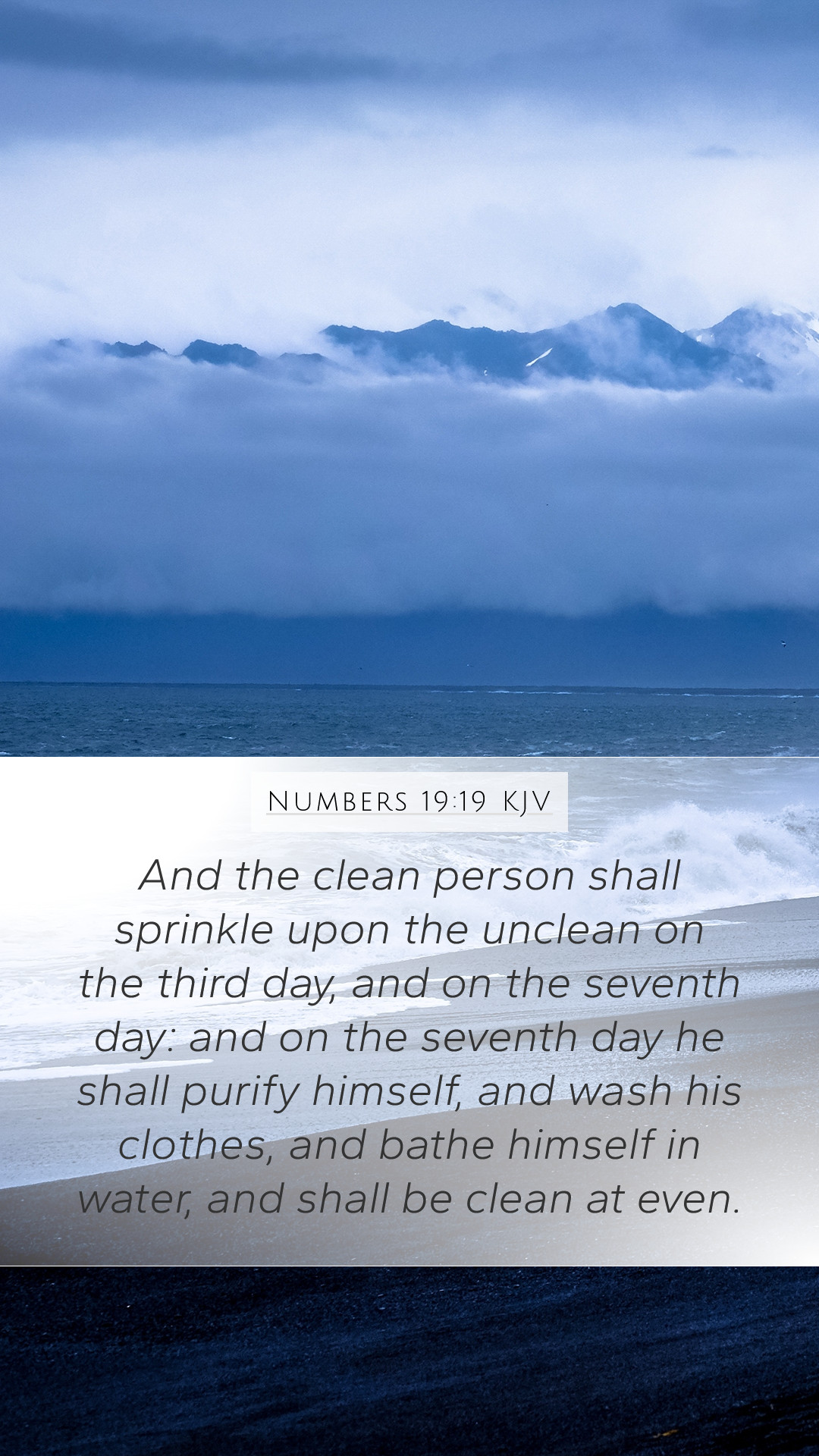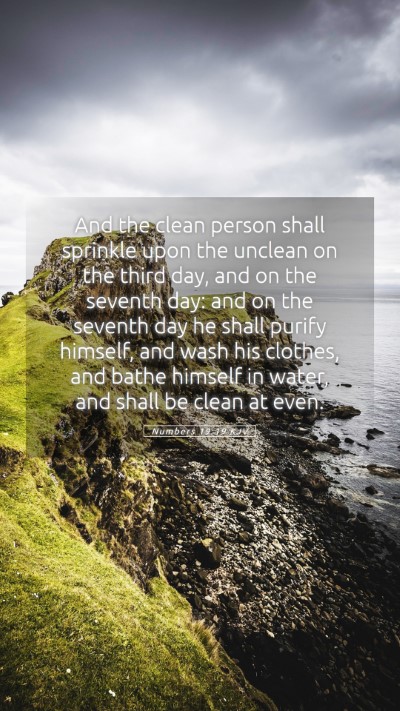Understanding Numbers 19:19
In Numbers 19:19, the scripture states, "And the clean person shall sprinkle upon the unclean on the third day, and on the seventh day: and on the seventh day he shall purify himself, and wash his clothes, and bathe himself in water, and shall be clean at even." This verse deals with the purification processes that were integral to the Jewish ceremonial law, emphasizing the necessary steps for restoring purity after contact with dead bodies or other sources of ceremonial uncleanness.
To fully understand this verse, we can consult prominent public domain commentaries such as those by Matthew Henry, Albert Barnes, and Adam Clarke. Each offers valuable insights into the spiritual and practical implications of this law.
Commentary Insights
-
Matthew Henry's Commentary:
Henry explains that the process of sprinkling involves both outward action and inner sanctification. The "clean person" acts as an intermediary, symbolizing Christ, who purifies believers. The third and seventh days signify a complete process of restoration, illustrating God’s patience and the importance of a thorough cleansing.
-
Albert Barnes' Notes:
Barnes emphasizes the meticulous nature of these purification rites, suggesting they reflect the holiness required by God. He highlights the spiritual lessons of being in a state of readiness and equipped for service, deriving deeper meanings which can encourage believers to be vigilant in their moral and spiritual lives.
-
Adam Clarke's Commentary:
Clarke focuses on the procedural aspect of these laws, stressing their role in communal life among the Israelites. He connects the ritual to the faithfulness of God in providing a means for cleansing and restoration, deepening our understanding of how these practices foreshadow the ultimate purification through Christ.
Spiritual and Practical Applications
The purification process outlined in this verse is not merely historical but holds significant meaning for contemporary believers. Understanding this scripture can enhance one's Bible study insights and Bible verse interpretations, leading to deeper Bible verse explanations and understanding Scripture.
Key Themes
-
Restoration of Purity:
This verse signifies God's provision for human sinfulness and the ritual required to restore purity. In a broader sense, Christians today can reflect on their own journeys towards holiness and the importance of seeking forgiveness and restoration.
-
The Role of Intercession:
The “clean person” symbolizes the role of Jesus as our intercessor. Just as the clean person helped restore the unclean, believers are called to intercede for others, embodying Christ's redemptive work daily.
-
Timeliness of Cleansing:
The specified times of purification, the third and seventh days, align with concepts of waiting and preparation in a believer's life, reminding us that spiritual readiness is an ongoing process.
Related Bible Cross References
-
Leviticus 14:8-9:
Discusses further purification rituals that echo the themes found in Numbers 19:19, emphasizing the importance of cleanliness in the camp of Israel.
-
Hebrews 9:14:
Illustrates how Christ’s sacrifice purifies our conscience, connecting Old Testament law to New Testament grace.
-
1 John 1:9:
Affirms the promise of cleansing from all sin, highlighting the continuity of the need for purification in the life of a believer.
Conclusion
Numbers 19:19 serves as a profound illustration of the need for purification, underscoring the themes of intercession, restoration, and spiritual readiness. This verse invites believers to engage in self-reflection and active participation in the community of faith, using tools from Bible study resources and Bible study guides to deepen their understanding of such vital scriptures.
Believers are encouraged to approach this verse with a heart of inquiry and a desire for deeper Bible study insights, asking questions such as, What does Numbers 19:19 mean in my daily life? and How can I apply the principles found in this verse to my spiritual walk?


